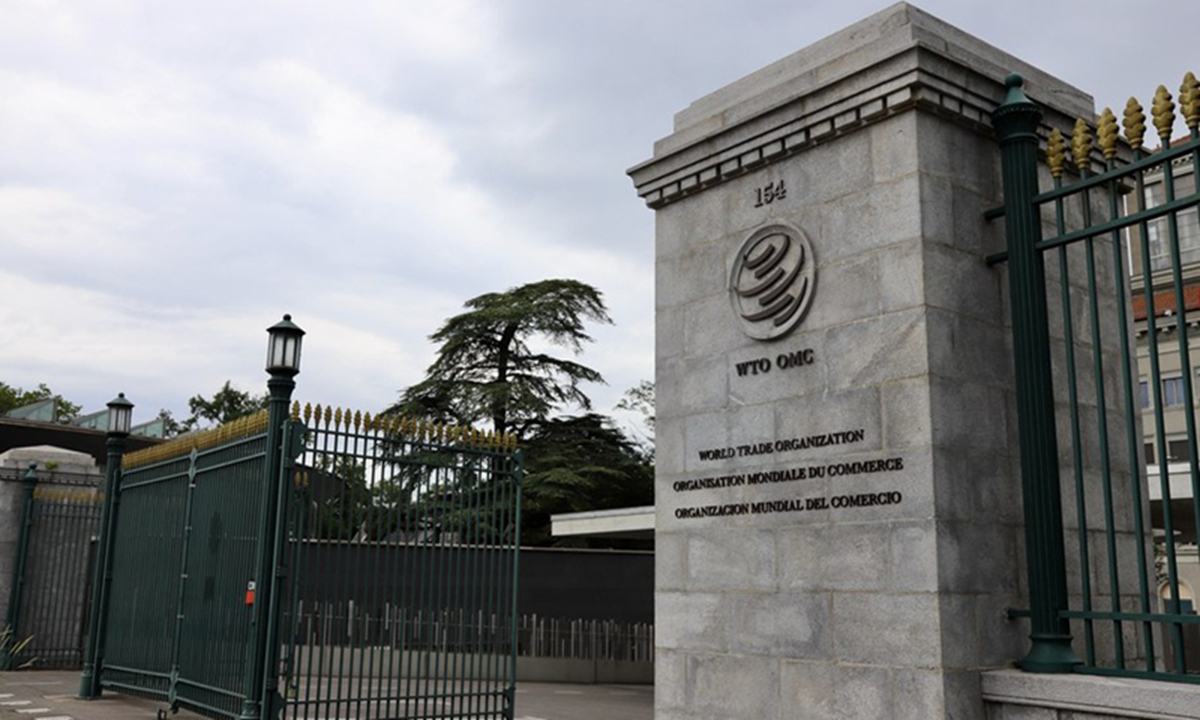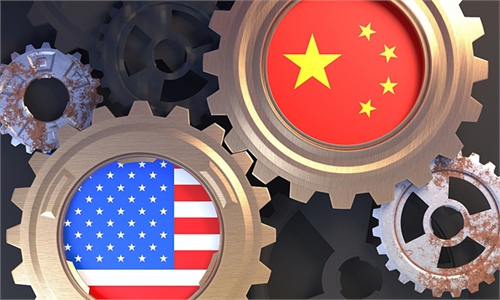
Photo: Xinhua
China's Ministry of Commerce announces on Monday that it has appealed to the World Trade Organization (WTO) dispute settlement mechanism against the US' export controls on products such as chips to China.
The reason for China's prosecution is justified. The US continues to use the guise of national security, abuse export control measures, hinder the normal international trade of chips and other products, threaten the stability of the global industrial chain and supply chain, undermine the international economic and trade order, violate the international economic and trade rules, and harm global peace and development, which is a typical trade protectionist practice.
According to foreign media reports, this marks the first phase of the dispute settlement mechanism surrounding this lawsuit in the WTO. The US has 60 days to negotiate, but it is expected that the dispute between China and the US around chip export control may take several years to be resolved in the WTO.
Whether the US will respect and implement the ruling remains an open question. The US has always required other countries, especially emerging economies and developing countries, to abide by the so-called "rules-based international order," but once its own interests are involved, it immediately introduces another set of standards.
Faced with the recent ruling by the WTO expert group that the US' tariffs on steel and aluminum violates WTO rules and the rejection to the US defense invoking WTO security exception clause, the US not only strongly opposed it, claiming that it had no intention of canceling the section 232 tariffs, but also taking the opportunity to accuse the report of the WTO expert group of further highlighting the necessity of WTO reform. Obviously, "national security" has once again become a shield for the US to trample on WTO rules.
The predecessor of the WTO, the General Agreement on Tariffs and Trade (GATT), was one of the three pillars of the Bretton Woods system, which, to a large extent, marked that the US officially supplanting the UK as the main guarantor of the global economic, financial and trade system. At least until 2017, the US generally still values free and fair trade. The US has been a key force in promoting economic globalization for quite a long time. Therefore, it has formed an industrial, trade and labor division order with China and other emerging economies and developing countries, with the multi-win cooperation characteristics.
However, since the Trump administration, radical anti-China forces in the US started with the so-called 301 investigation, and then launched a series of unconventional extreme pressure measures to target specific Chinese technology companies and individuals under the guise of "national security." Carrying out suppression and strikes, even unilaterally provoking the expanding and escalated economic and trade frictions with China, trying to force China to make concessions on core and key interests, it took the opportunity to cut off China's technological and industrial links with the US and the West.
However, the facts over the past few years have proved that the US wielding the stick of tariffs and other protectionist measures and even bullying does not help solve the so-called "national security" issue of the US. It fails to change the overall pattern of China-US trade, adding economic burden on the American people and pushing up the US' inflation.
The US once took the lead in creating the principles of non-discrimination, trade liberalization, transparency, reciprocity, and fair and equal handling of trade disputes in the WTO. However, it refused to recognize the authority of the WTO ruling. Instead, the US demanded reform to the WTO structure and related principles that it took the lead in designing back then, fully exposing the logic of double standards and hegemony.
The US' "CHIPS and Science Act" provides huge subsidies and tax incentives for the domestic US chip industry, while substantially amending the "Export Administration Regulations" (EAR) to restrict China's purchase and manufacture of high-performance chips, it is a violation of the principles of openness, transparency and non-discrimination in the WTO.
In particular, the "guardrail provisions" are suspected of violating the WTO's requirements for most-favored-nation treatment and national treatment, and also does not conform to the policy logic emphasized by the US to maintain the resilience of the global chip industry supply chain. In essence, this is to eliminate the so-called "threat" to the US from actual or potential systemic competitors by creating "technological nationalism" in the era of globalization, and to ensure that the US always maintains an intergenerational advantage over its main competitors.
However, protectionism has always been a cancer in the international division of labor and the healthy development of the global economy. Since its establishment, the WTO has played an irreplaceable role in maintaining multilateralism, promoting fair trade and investment facilitation. Maintaining the tradition and authority of the WTO's anti-protectionism and promoting the free flow of goods, capital, and people in various countries is not only the key to saving transaction costs, but also an irreplaceable path to maintain the integrity and resilience of the global industrial and supply chains.
Zhang Yugui is dean of School of International Finance and Trade, Shanghai International Studies University. Xia Shufang is a professor with School of International Finance and Trade, Shanghai International Studies University. bizopinion@globaltimes.com.cn



